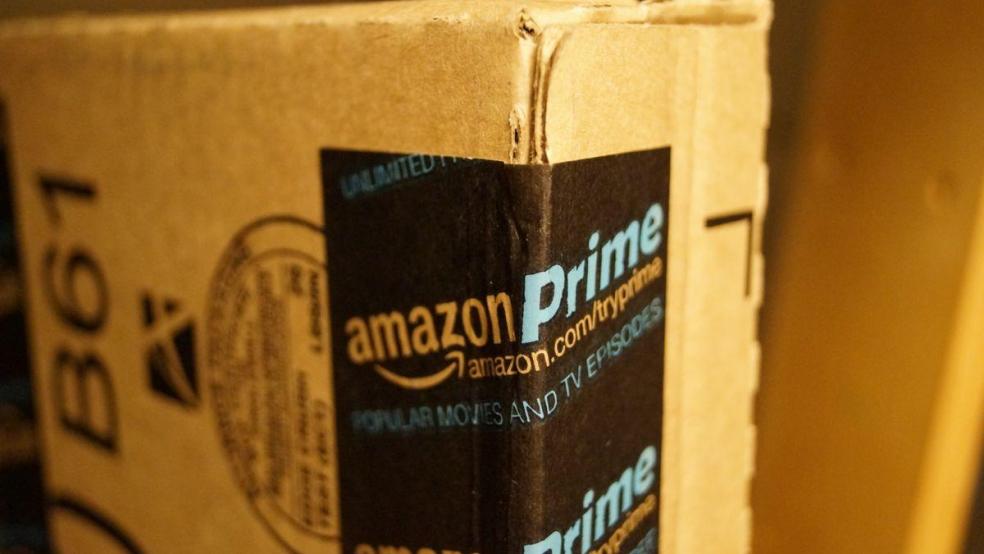Is Walmart's formula the right strategy for Amazon?
The dispute between Amazon (NASDAQ:AMZN) and publisher Hachette has somehow grown into an epic saga pitting the forces of literary light against the dark lord of the Internet.
As if that wasn't bad enough for public relations, comedian Stephen Colbert, host of The Colbert Report on Comedy Central, is leading the army of the literary light. He literally gave the finger to Amazon on his show last week.
This army needs no weapons but words, and it's got a million of them.
In purely financial terms, book publishing isn't a major industry, and Amazon diversified out of that niche a long time ago. Doesn't matter.
The controversy began when negotiations between Amazon and Hachette broke down. No one but the principals know why, but the general assumption is that Amazon demanded price concessions from Hachette, and Hachette refused.
Amazon then retaliated. The pre-order option has been removed from Hachette books. Some of its authors have been unlisted. Discounts have been trimmed. Delivery times have been lengthened.
Amazon is the source of about 50% of American book sales, including e-book downloads.
There's no doubt it hit Hachette, and its authors, where it hurts. The company has not released any estimate of sales lost since the dispute escalated. It said that its announcement last week that it would lay off 3% of its staff was not related, and had been planned before the Amazon dispute.
Hachette has enthusiastically joined the campaign against Amazon, which has turned into a campaign for independent booksellers.
The company's Twitter page, @HachetteUS, has a note reading: "Thanks, Amazon, the indies will take it from here," along with a link to pre-order and buy Hachette titles elsewhere.
Colbert, who has a new book out from Hachette, is offering a downloadable sticker with the slogan "I didn't buy it at Amazon" on his website.
Scott Turow, the mega-selling writer of legal thrillers, compared Amazon to Darth Vader. Vladimir Putin and the cast of The Sopranos also have been mentioned. A new Twitter hashtag, #CutDownTheAmazon, urges readers to boycott Amazon.
Amazon has its defenders, even among authors. Writing in The Guardian, novelist Barry Eisler argues that Amazon has consistently given authors a better deal, and more opportunities, than any modern publisher ever did, including a viable option to self-publish.
Boston Globe columnist Alex Beam points out that "the reason authors have literary agents, for instance, is to protect them against publishers, not against booksellers."
Certainly, Amazon's opponent is no fluffy little bunny. Hachette Group USA is a division of French publishing house Hachette Livre, which in turn is a subsidiary of global media company Legardere. Hachette is one of the "Big Five" major publishers still surviving in the US.
It's worth asking whether Amazon's obsession with low prices is the right strategy for the long term. Its profit margin is super-slim -- Forbes estimates it at 0.38 percent -- and it apparently expects the same from its suppliers.
No wonder Amazon is often called the Walmart (NYSE:WMT) of the Internet. It's a new-tech iteration of the Sam Walton formula. But Sam's formula isn't cooking all that well lately.
Last week, Belus Capital Advisors initiated its coverage of Walmart with a "sell" rating, and analyst Brian Sozzi wrote that he has had "this creepy emotion inside of me that the company is headed towards a dark place, brought into existence by the evolving game of retailing and Walmart's own initiatives to stay competitive in the eat or be eaten ecosystem..."
Sozzi notes that Walmart, having established itself as the low-price leader for everything, has poured billions of dollars into cutting prices still lower, only to see same-store sales decline for five straight quarters.
All Walmart has achieved, in fact, is to force its competitors -- which stretch across many retail categories -- to cut their own prices to stay in the game.
This article originally appeared at Minyanville. Read more from Minyanville:
Amazon Enters the Smartphone Death Match, and Data Could Give It an Edge
Apple May Ditch the iPhone's Headphone Jack to Little Benefit
Console Wars' Book Review: When Nintendo and Sega Were Kings




